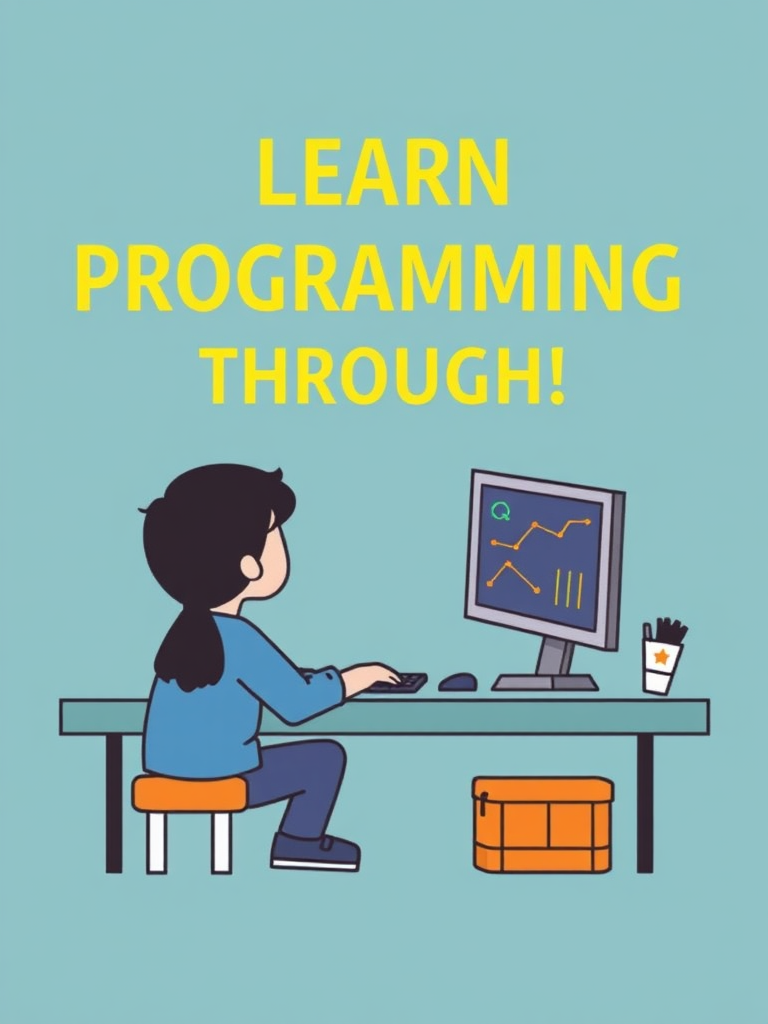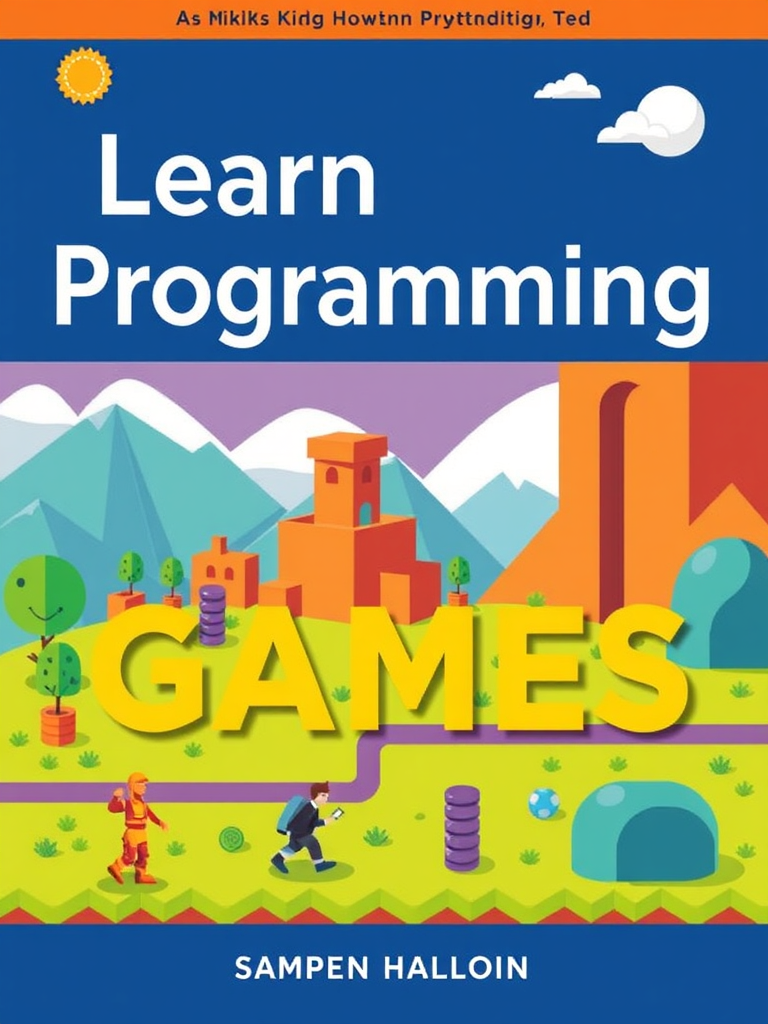
Introduction
Learning programming can be a daunting task, especially for beginners. The traditional methods of studying textbooks and writing lines of code can sometimes feel tedious and overwhelming. However, there’s a more engaging and enjoyable way to learn programming: through games. In this article, we’ll explore how you can learn programming through games, the benefits of this approach, and some of the best resources available to get you started.
Why Learn Programming Through Games?
Engagement and Motivation
Games are designed to be fun and engaging. When you learn programming through games, you’re more likely to stay motivated and committed to the learning process. The interactive nature of games keeps you interested and makes the learning experience enjoyable.
Practical Application
Games provide a practical context for applying programming concepts. Instead of just learning theory, you get to see how your code affects the game environment. This hands-on approach helps reinforce your understanding and makes it easier to remember what you’ve learned.
Problem-Solving Skills
Programming is all about problem-solving. Games often present challenges that require you to think critically and come up with creative solutions. By solving these challenges, you develop your problem-solving skills, which are essential for any programmer.
Immediate Feedback
One of the biggest advantages of learning programming through games is the immediate feedback you receive. When you write code in a game, you can see the results right away. This instant feedback helps you understand what works and what doesn’t, allowing you to learn from your mistakes and improve your skills.
Best Resources to Learn Programming Through Games
1. CodeCombat
CodeCombat is a popular platform that teaches programming through a role-playing game. You write code to control your character and complete various challenges. The game supports multiple programming languages, including Python, JavaScript, and Lua.
2. Scratch
Scratch is a visual programming language developed by MIT. It’s designed for beginners and allows you to create your own interactive stories, games, and animations. Scratch is a great way to learn the basics of programming in a fun and creative way.
3. Robocode
Robocode is a programming game where you write code to control a robot tank. The goal is to defeat other robots in a battle arena. Robocode is a great way to learn Java and improve your programming skills.
4. CodinGame
CodinGame is a platform that offers a variety of programming challenges and games. You can solve puzzles, participate in coding competitions, and even create your own games. CodinGame supports multiple programming languages, including C++, Java, Python, and more.
5. CheckiO
CheckiO is a game that teaches programming through a series of challenges. You write code to solve problems and progress through the game. CheckiO supports Python and JavaScript and is a great way to improve your coding skills.
How to Get Started with Learning Programming Through Games
Choose the Right Game
The first step is to choose a game that matches your skill level and interests. If you’re a beginner, start with a game like Scratch or CodeCombat. If you have some programming experience, you might enjoy more advanced games like Robocode or CodinGame.
Set Realistic Goals
Set realistic goals for what you want to achieve. For example, you might aim to complete a certain number of levels or challenges each week. Having clear goals will help you stay focused and motivated.
Practice Regularly
Consistency is key when learning programming. Try to practice regularly, even if it’s just for a few minutes each day. The more you practice, the better you’ll become.
Join a Community
Joining a community of like-minded learners can be incredibly helpful. You can share your progress, ask for help, and learn from others. Many programming games have active online communities where you can connect with other players.
Don’t Be Afraid to Make Mistakes
Making mistakes is a natural part of the learning process. Don’t be afraid to experiment and try new things. When you make a mistake, take the time to understand what went wrong and how you can fix it.
Benefits of Learning Programming Through Games
Improved Retention
When you learn programming through games, you’re more likely to remember what you’ve learned. The interactive nature of games helps reinforce your understanding and makes it easier to recall information.
Enhanced Creativity
Games encourage creativity and experimentation. As you learn programming through games, you’ll have the opportunity to create your own projects and explore new ideas. This can help you develop a more creative approach to problem-solving.
Increased Confidence
Successfully completing challenges and solving problems in games can boost your confidence. As you progress, you’ll feel more confident in your programming abilities and be more willing to take on new challenges.
Fun and Enjoyment
Perhaps the most obvious benefit of learning programming through games is that it’s fun! When you enjoy the learning process, you’re more likely to stick with it and achieve your goals.
Common Mistakes to Avoid When Learning Programming Through Games
Skipping the Basics
It’s important to build a strong foundation in programming basics before diving into more advanced topics. Make sure you understand the fundamentals before moving on to more complex challenges.
Not Practicing Enough
Practice is essential for mastering programming. Don’t just play the games passively; actively engage with the challenges and try to solve them on your own.
Getting Stuck on One Game
While it’s good to focus on one game at a time, don’t be afraid to explore other games and resources. Different games can teach you different skills and concepts, so it’s beneficial to try a variety of them.
Not Seeking Help When Needed
If you’re struggling with a particular challenge, don’t hesitate to seek help. Join online communities, ask questions, and learn from others. There’s no shame in asking for help when you need it.
Storing Tips for Your Progress
Keep a Learning Journal
Keeping a learning journal can help you track your progress and reflect on what you’ve learned. Write down the challenges you’ve completed, the concepts you’ve mastered, and any questions you have.
Use Version Control
If you’re working on more advanced projects, consider using version control systems like Git. This will help you keep track of your code changes and collaborate with others.
Backup Your Work
Make sure to regularly backup your work. This will protect you from losing your progress in case of a technical issue.
FAQs About Learning Programming Through Games
1. Is learning programming through games effective?
Yes, learning programming through games can be very effective. Games provide a fun and engaging way to learn programming concepts and improve your skills.
2. What are the best games for learning programming?
Some of the best games for learning programming include CodeCombat, Scratch, Robocode, CodinGame, and CheckiO.
3. Can I learn programming through games if I’m a complete beginner?
Absolutely! Many games are designed specifically for beginners and provide a gentle introduction to programming concepts.
4. How much time should I spend learning programming through games?
The amount of time you spend learning programming through games depends on your goals and schedule. Even just a few minutes a day can be beneficial.
5. Are there any free resources for learning programming through games?
Yes, many of the games and platforms mentioned in this article offer free versions or free trials. You can also find free tutorials and resources online.
Conclusion
Learning programming through games is a fun and effective way to develop your coding skills. By choosing the right games, setting realistic goals, and practicing regularly, you can make significant progress in your programming journey. Remember to enjoy the process and don’t be afraid to make mistakes. With the right approach, you’ll be well on your way to becoming a proficient programmer.
For more information on game design and art, check out our Game Design & Art page.

UGREEN USB-C Bluetooth Adapter for PS5
UGREEN USB-C Bluetooth Adapter for PS5, Bluetooth 5.3 Audio Adapter with APTX Low Latency & aptX-Adaptive, Wireless Audio Transmitter to Connect Wireless Headphones & Earbuds

MMO Mug
MMO Mug - Legendary Coffee Mug Level 110 - Large Ceramic Black15oz - Gaming, Gamer Cup

RAWM ES21 Wireless Gaming Mouse
Razer DeathAdder V4 Pro Wireless Gaming Mouse: 56g Lightweight - HyperSpeed Wireless Gen-2 - Optical Scroll Wheel - Optical Switches Gen-4 - Focus Pro 45K Sensor Gen-2 - Up to 150 Hr Battery

Vooii for iPhone SE
Vooii for iPhone SE Case 2022/3rd/2020,iPhone 8/7 Case, Upgraded Liquid Silicone with [Flat Edges] [Camera Protection] [Soft Anti-Scratch Microfiber Lining] Phone Case for iPhone SE - Black

